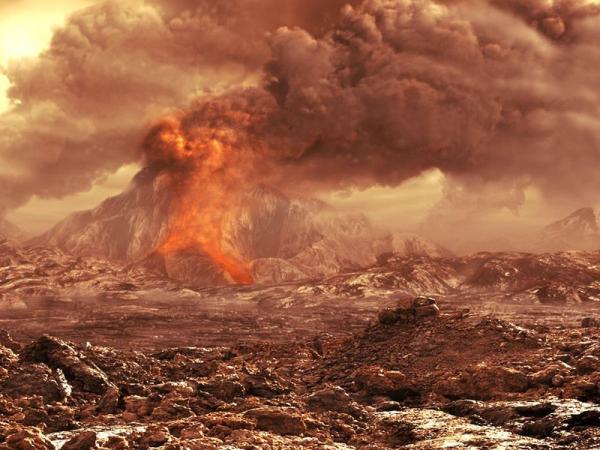
In 1812, Emperor Napoleon Bonaparte of France was considered unstoppable. The weather did not get the memo and he slunk out of a Russian winter, defeated.
Three years later, he again attempted to conquer Europe and lasted for 111 days. He was hindered by poor military judgment, an inability to maneuver, and superior odds against him. Unless it was the weather again, which is the premise of a new article in Geology.
The author, Dr. Matthew Genge of Imperial College London (1), argues that the Mount Tambora volcano, which erupted in Indonesia and was the most powerful in recorded history (killing 100,000 people and giving us ‘the year without a summer’(2) in 1816), was a hidden corps working against Bonaparte. Electrified volcanic ash from eruptions can cause a kind of ‘short-circuit’ in our upper atmosphere where clouds form and, he writes, and it could have been the reason Napoleon was defeated. All that is needed is for volcanic plumes and ash to both have negative electrical charges and essentially repel each other.
Napoleon's defeat is a military debate that will never end. The English insist Wellington was brilliant and that they took out Napoleon right after clobbering the Americans in the rematch of 1776 (3), the Prussians are insulted they don't get more credit, since it was their corps outmaneuvering him and showing up unknown to Napoleon that made a huge difference, and the French are forced to concede that a French man has never won a war.(4)
Unless science did him in. That wouldn't count for anyone.
Genge contends that prior science was wrong and volcanic ash does not stay in the lower atmosphere, where buoyancy would place it and where it has obvious ramifications in temperature. If it reaches the upper atmosphere, and the ionosphere's electrical current is modified by likewise electrified volcanic ash, that could have led to an increase in clouds and heavy rain. Napoleon, who won battles using maneuverability, couldn't move in the extra mud.
All because of Indonesia? Are Europeans blaming the developing world for their failures again?
No, this could be real. The model showed that electrostatic forces lift the smallest ash higher than buoyancy alone would. And those small particles could even reach the ionosphere during an eruption, where they could cause the short circuit. Genge's model also successfully predicted the past using the 1883 Krakatoa eruption and Mount Pinatubo in 1991. The problem is the timeframe. Tambora erupted in April and for it to have ramifications for Europe in mid-June, when the other effects were not felt until the following year, means the electricity would have to have created an immediate "domino" effect.
But he is English, so he is not taking anything away from Wellington unless he believes awkward data makes it necessary.
NOTES:
(1) He is at the Impact and Astromaterials Research Centre (IARC) of UCL. Given the scandals of the French IARC, the statisticians who manufacture new carcinogen claims twice per year, this is a case of unfortunate acronyms for the British.
(2) Along with other science of the day, which I detailed here, the bleak summer inspired Mary Shelley's "Frankenstein" published two years later
(3) Even though the bulk of his army was not English, they were Irish, Welsh, Scots, and a whole lot of troops from the continent, and they waited Bonaparte out. The political situation in France was tenuous, Napoleon had to win and fast, since he overthrew the government. So stall tactics were the default for the seventh coalition.
(4) Joan of Arc not being a man.



